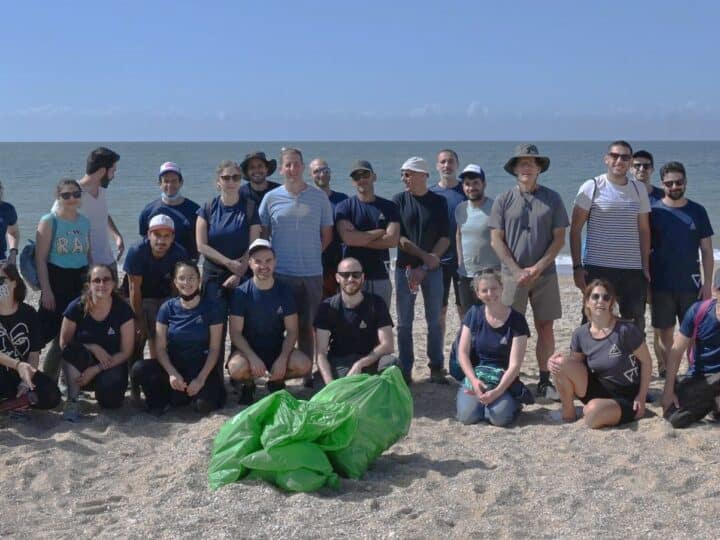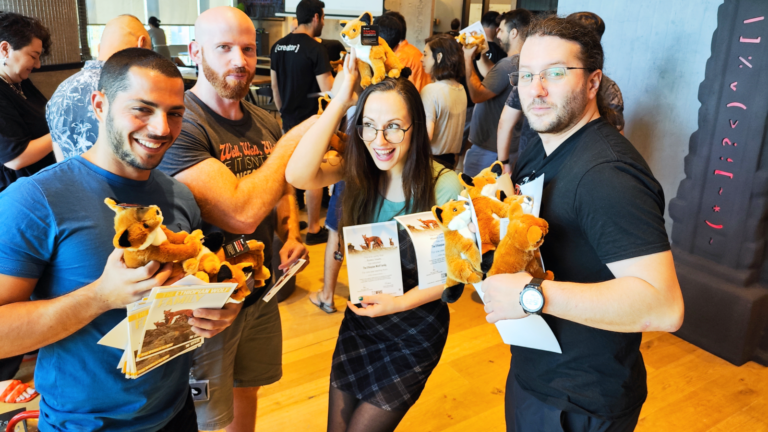Veteran venture capitalist Yadin Kaufmann recalls watching the first steps of the newborn Startup Nation in 1999, upon returning to Israel after several years in the United States.
“We started seeing success in the tech sector and there was some criticism that it wasn’t benefiting the rest of Israeli society,” he says.
“I wanted to connect some of the success in the tech sector with less fortunate elements in Israeli society.”
Kaufmann established an Israeli affiliate of Silicon Valley’s Entrepreneur Foundation, which in 2002 became the independent Tmura – The Israeli Public Service Venture Fund.
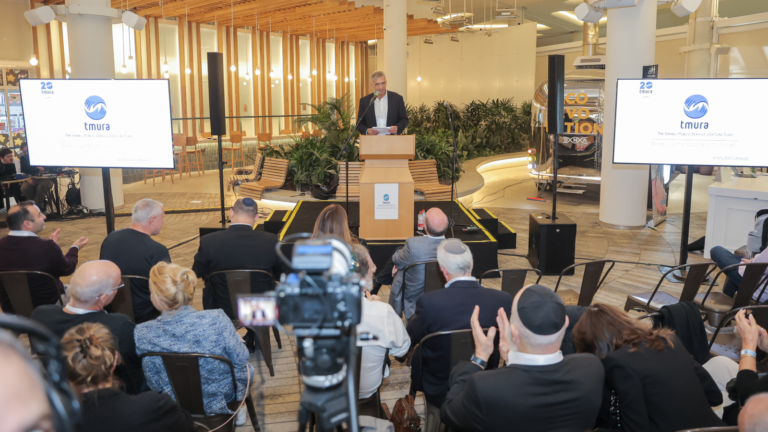
Early-stage philanthropy
Early-stage companies can set a philanthropic tone by giving Tmura a warrant that is convertible into a small portion of their equity. It’s a commitment to share potential benefits if the venture succeeds.
When a portfolio company does an “exit” through acquisition or IPO, Tmura sells its shares and donates the proceeds to education- and youth-related organizations in Israel.
With a portfolio of option donations from 837 startups – about 165 of which have had successful exits — Tmura has generated some $29.5 million for vetted nonprofits over the past 20 years.
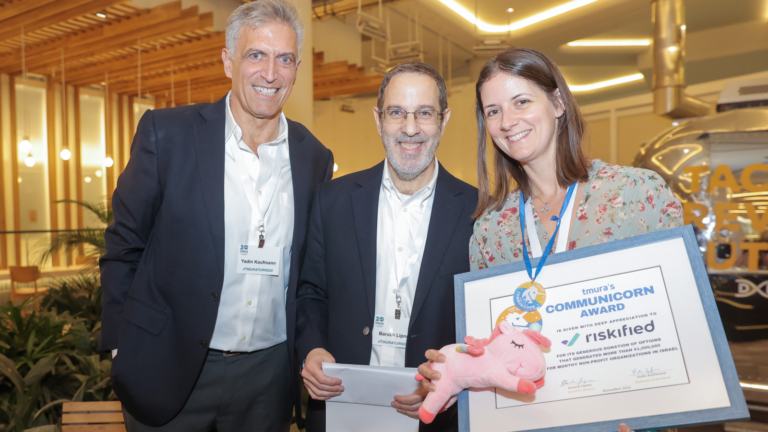
Tmura enjoyed a record year in 2022, transferring about $4 million to charities, signing up 64 new donor companies and receiving exit proceeds of more than $4.8 million from companies including Outbrain, Riskified, Innovid, Sofwave, AlphaTau Medical and Breezometer.
From skepticism to support
“There was skepticism when I started, but people in the VC community were helpful in getting their portfolio startups to participate,” says Kaufmann.
“Since then, a lot of lawyers, accountants and VCs have become part of Tmura. Everybody feels it is our obligation, as high-tech citizens of Israel, to support youth if we want the tech sector to continue its success.”
“Out of the 837 startups that have contributed to Tmura, we still have a portfolio of hundreds of active companies and we’re all hoping for them to succeed,” says Executive Director Baruch Lipner, Tmura’s sole paid employee.
“Even if most companies don’t make it to exit, it’s great that they tried, because the concept of giving is important for management and employees,” Lipner tells ISRAEL21c.
“And many of these entrepreneurs will start another company that, hopefully, will join Tmura as well.”
Communicorns
To celebrate its 20th anniversary, Tmura launched the “Communicorn Club” of companies whose equity donation has generated at least a million dollars in cash for charity.
The first members are Aquarius Engines, M-Systems, Outbrain, Riskified, Waze, and an anonymous angel investor.
“As is the case with all our option donations, these six successful companies gave us options at a stage when no one knew what their ultimate value would be,” says Lipner.
Yaron Galai and Ori Lahav founded Outbrain in 2006 to solve the problem publishers had in replicating the print experience of turning a page to discover the next article or product on the web.
It took 15 years until Outbrain became the success that it is today, with 18 global offices, partners in 55 countries, and more than 800 employees.
Lahav tells ISRAEL21c that they decided to donate options to Tmura back in 2007.
“Tmura is the most genius way for technology founders to give back. You’re giving something that you don’t yet have, that’s worth zero, and over time the value is being built,” he says.
“After an exit, the first thing that happens is tons of calls from NGOs, and it’s a hard choice to decide whom to donate to. With Tmura, we were able to forget about it and focus on building our company until the time came that we were able to donate a significant amount twice, from two funding rounds.”
‘They make us better’
HaGal Sheli, one of Tmura’s grantees, uses surfing to empower at-risk youth to get back on track with a heightened sense of dignity, self-worth and accomplishment.
Founder and CEO Yaron Waksman calls Tmura “amazing.”
Since September 2016, Tmura has provided HaGal Sheli (My Wave) the shekel equivalent of about $370,000.

“They don’t just donate money. They also ask us to set milestones for ourselves to work better and measure better, and that’s unique,” Waksman tells ISRAEL21c.
“They let us decide what to do with the funds, but they help us think what will make us a better organization,” he adds.
“It’s not like sending senseless reports – it’s working together on a plan to help keep us focused on our mission. They helped us build our website, improve our graduates community, and adjust our program for specific communities here in Israel.”
Over the past year, for instance, HaGal Sheli translated and adapted its syllabus and educational materials into Arabic, hiring Arabic-speaking staffers as well.
Beneficiaries
Companies signing up with Tmura may select an approved charity or let Tmura choose.
“Sometimes companies are already volunteering with a charity and want to support it, while others at the time of exit let employees recommend or vote on where to donate. It’s a good team-building experience and affects employees in meaningful ways,” says Lipner.
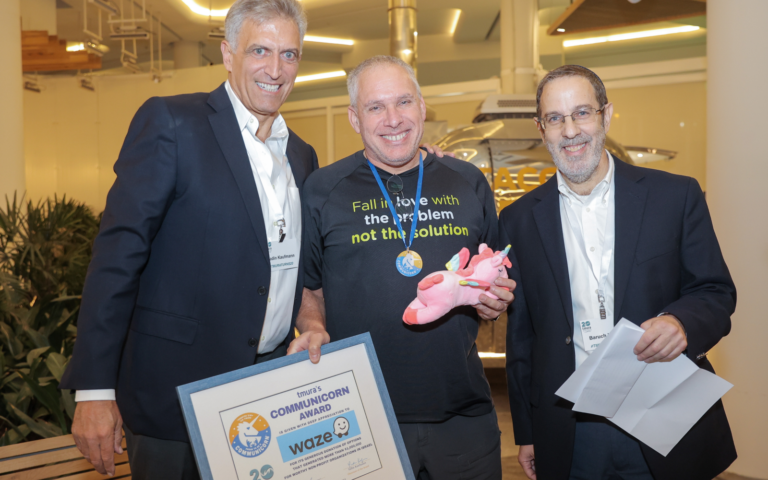
Among many choices are Heroes for Life, which recruits IDF veterans traveling abroad to volunteer with disadvantaged children; Out For Change, which helps formerly ultra-Orthodox youth enter mainstream society; and SAHI, which empowers at-risk youth to make a positive social change in their communities.
Newest grantees include 20-80, a technological platform connecting senior citizens and young people; Anya Benya, a youth movement linking people from a range of societal sectors; Gav LaLochem, a mentorship program helping recently discharged soldiers transition to civilian life; Shavot, which helps girls strengthen their sense of self-worth; and Shishi Shabbat Yisraeli, which aims to strengthen young Russian-speaking Israelis’ Jewish and Israeli identity.
For more information, click here.















